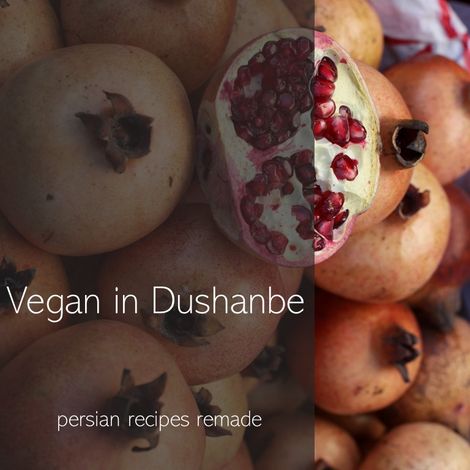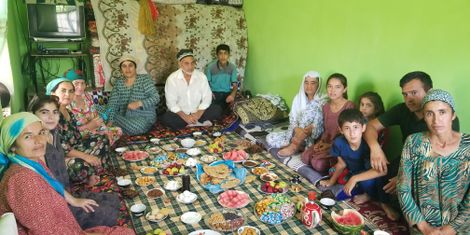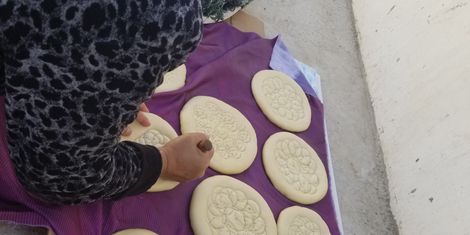Vegan in Dushanbe: Persian Recipes Remade



As an important component of culture, community, and memory, food is often considered a tie that connects immigrants to their homelands. Food centers in family and community gatherings, during holidays, and inter-generational teachings. People who are unable to participate in traditional meals or meal preparation find themselves disconnected from the family or friends, which becomes a tragic reality for vegans when cultural-traditional dishes heavily feature meat, diary, and other animal products. We have seen many cases of first and second-generation individuals are unable to participate in family dinners because of their ethical beliefs and practices, and have heard many stories of how this distances them from their family and culture.
Later generations of immigrants are already at risk in experiencing distancing from their cultural traditions. This is the result of being more closely intertwined with their new country's education system, media, language, and culture. It should not be the case that vegans should experience an additional barrier in maintaining their culture.
In response to this problem, we are currently developing a vegan cookbook that re-creates Persian dishes with all-vegan ingredients. Persian food spans many countries (Afghanistan, Iran, Pakistan, Tajikistan, and Uzbekistan), yet is defined by its heavy use of meat and incorporation of honey. Using regional (chickpeas, lentils) and 'international (tempeh, 'seitan) meat substitutes and adjust
We seek to conduct as much of our project digitally as possible for two reasons, First, we want to minimize resource and paper waste. Second, we want our project to be truly borderless and accessible to all practicing and aspiring vegans, regardless of socioeconomic status and location. Our end product will be a fully open-source ebook. While initial promotion will be concentrated around Seattle (given large Persian community), we want the project to be accessible to everyone.